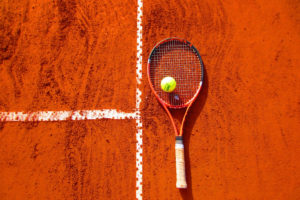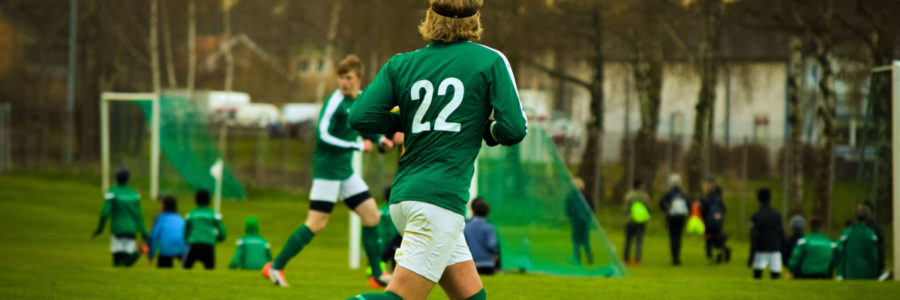Sports are tough if you do them right. Practices should be grueling. Injuries? Hopefully minor. Less time to study. Less time to spend with friends. More aches and pains. If you are lucky, a few family members show up to support you unless you. So why do people play sports and why should you?
You may not know this, but large corporations put a high value on hiring people who have played sports at an elite level in the past. The reason is simple. They must have confidence, a great work ethic and they have to be competitive to preform well. They also need to be able to bounce back from a failure because no one wins all the time. Doesn’t this sound like the perfect employee if you are hiring someone?
But is all starts at a young age and there are other benefits early on where kids can benefit from playing sports even if they do not reach an elite level.
- Self Esteem – If you are serious about a sport, then you are going to work on your self esteem and improve it. Very simply, your confidence and belief in yourself are primary factors in winning more. The nice thing sports do for self esteem is it gives the player a purpose and focus to work on it. If you only told someone to work on their confidence, with no framework, it is very hard to do. However, when applied to a clear purpose with clear rules and expectations, it is easier to focus and develop a more positive framework for someone. This will then translate to other parts of life over time, improving confidence and self-esteem in all areas.
- Sticking Up for Yourself – Some people in sports cheat or are very aggressive. While this may seem like a shocking situation the first time it is encountered, it will teach a player to stand up for themselves as well. Parents with youth athletes should talk with them on how to handle different situations. Over time, this adds a strength to people who simply do not roll over and take whatever comes their way.
 Competitive Drive – Not everything in life needs to be a competition. But let’s face it, many things are. Some are friendly competitions and other things are real, meaningful competitive situations, like landing a client or getting a job. Knowing how to compete at a high level is never going to be a skill you regret having in life.
Competitive Drive – Not everything in life needs to be a competition. But let’s face it, many things are. Some are friendly competitions and other things are real, meaningful competitive situations, like landing a client or getting a job. Knowing how to compete at a high level is never going to be a skill you regret having in life.- Fitness – This might have been the first thing that came to your mind when you saw the title of this article. Yes, fitness is a big plus. In some cases, wanting to be better at sports will drive a person to be more fit. In other cases, the sport is the fitness that a person who may be less serious gets while playing. Either way, the alternative is probably staring into a screen so playing a sport, even if not at a high level, is good fitness and easier to do than running on a tread mill for an hour.
- Becoming a Goal Oriented Person – Initially when you take up a sport, it is normal to dream you are going to be a natural. The hard reality is it takes a lot of work to become competitive at any sport, if you are playing people of the correct level. This means someone dedicated to being a good athlete must develop goals and have an improvement plan. It also means managing other parts of your life more carefully to keep free time to develop your skills as an athlete. All of this leads to a more organized and goal-oriented lifestyle. That rarely is a bad thing in life.
 Unplugging – Lastly, it is hard to unplug. To not be attached to your phone or some other screen all the time. Playing a sport may be the longest you go without looking at a screen other than sleep. And the time flies by as you engage in competition and physical activity with a clear goal and requiring great focus and intensity. Sports are one of the few things that truly still engage us in the real world. We should be enhancing sports and getting more people competing, to help people stop their screen addictions.
Unplugging – Lastly, it is hard to unplug. To not be attached to your phone or some other screen all the time. Playing a sport may be the longest you go without looking at a screen other than sleep. And the time flies by as you engage in competition and physical activity with a clear goal and requiring great focus and intensity. Sports are one of the few things that truly still engage us in the real world. We should be enhancing sports and getting more people competing, to help people stop their screen addictions.
Now for a word of warning. Sports can be negative for kids as well. The number one reason I see it being negative is parents applying too much pressure and having unrealistic expectations. If you are trying to help your child become an elite athlete, you need to start early and have a ten-year plan. Winning and losing at an early stage means nothing. It is all about skill development and continually challenging those skills in harder situations. This means losing to get better. Winning is easy – just play easier people to beat. That will not develop your long-term skills though.
Striking the right balance and putting real effort into being a good athlete will not always lead to a pro career, but it will usually lead to a person more ready to take on the world and be a happier, more well adjusted and successful person.

